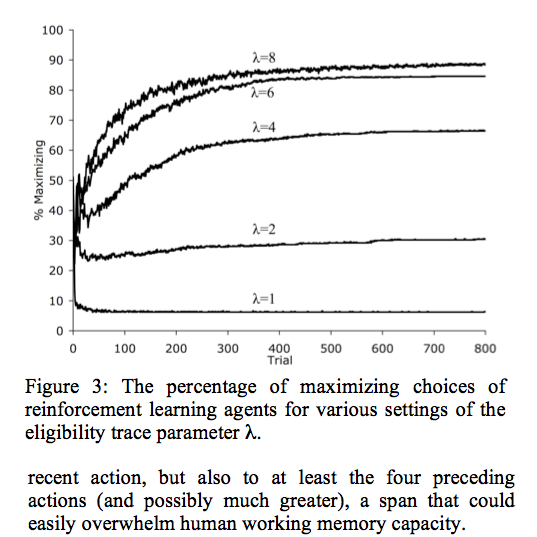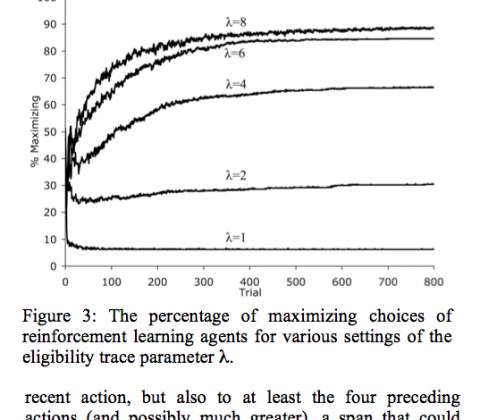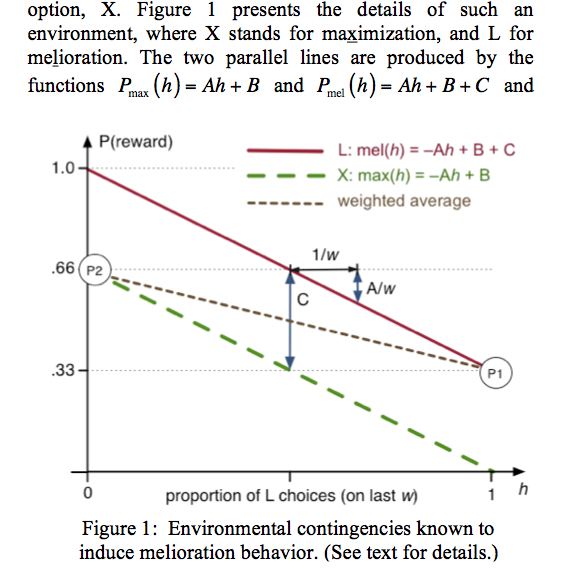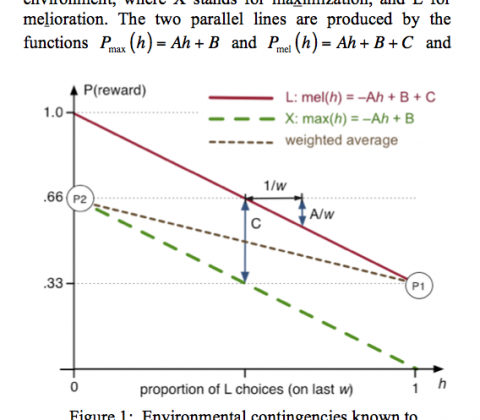Posts Tagged: feedback
issues of feedback, learning from feedback


Paper: Melioration dominates maximization
| There is no reason to suppose that most human beings are engaged in maximizing anything unless it be unhappiness, and even this with incomplete success. |
| R.H. Coase (1980), The Firm, the Market, and the Law, p. 4 |
Hansjörg Neth, Chris R. Sims, Wayne D. Gray
Melioration dominates maximization: Stable suboptimal performance despite global feedback
Abstract: Situations that present individuals with a conflict between local and global gains often evoke a behavioral pattern known as melioration — a preference for immediate rewards over higher long-term gains. Using a variant of a binary forced- choice paradigm by Tunney & Shanks (2002), we explored the potential role of global feedback as a means to reduce this bias.


Paper: Melioration despite informative feedback
| In many ways the word ‘meliorizing’ expresses a sensible middle way between optimizing and satisficing. Where optimus means best, melior means better. (…) Like a river, natural selection blindly meliorizes its way down successive lines of immediately available least resistance. The animal that results is not the most perfect design conceivable, nor is it merely good enough to scrape by. It is the product of a historical sequence of changes, each one of which represented, at best, the better of the alternatives that happened to be around at the time. |
| Richard Dawkins (1982), The Extended Phenotype: The Long Reach of the Gene, p. 46 |
Hansjörg Neth, Chris R. Sims, Wayne D. Gray
Melioration despite more information: The role of feedback frequency in stable suboptimal performance
Abstract: Situations that present individuals with a conflict between local and global gains often result in a behavioral pattern known as melioration — a preference for immediate rewards over higher long-term gains. Using a variant of a paradigm by Tunney & Shanks (2002), we explored the potential role of feedback as a means to reduce this bias. We hypothesized that frequent and informative feedback about optimal performance might be the key to enable people to overcome the documented tendency to meliorate when choices are rewarded probabilistically. Much to our surprise, this intuition turned out to be mistaken. Instead of maximizing, 19 out of 22 participants demonstrated a clear bias towards melioration, regardless of feedback condition. From a human factors perspective, our results suggest that even frequent normative feedback may be insufficient to overcome inefficient choice allocation. We discuss implications for the theoretical notion of rationality and provide suggestions for future research that might promote melioration as an explanatory mechanism in applied contexts.